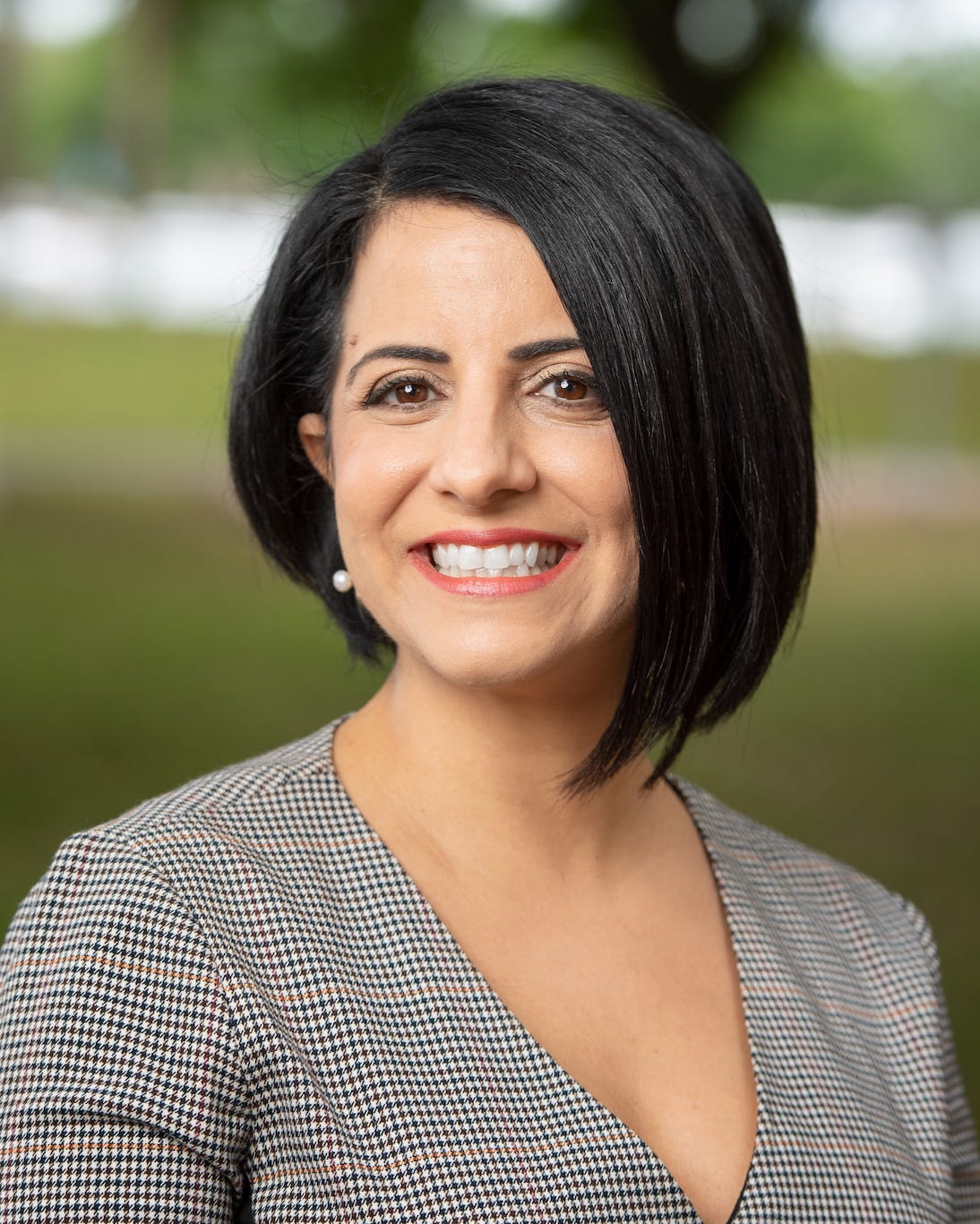Recap: Rekindling Joy & Purpose
Leveraging the Power of Human Connections for Faculty & Student Success, with Dr. Isis Artze-Vega
Last month, CETL was thrilled to welcome Dr. Isis Artze-Vega to speak on one of our key themes this semester: joy and purpose in the classroom. Sixty faculty and graduate students attended the lunch workshop.
Isis serves as College Provost and Vice President for Academic Affairs at Valencia College in central Florida, a Hispanic-Serving Institution long regarded as one of the nation’s best community colleges. She provides strategic leadership in the areas of curriculum, assessment, faculty development, online learning, career and workforce education, and partnerships for educational equity. She is also the coauthor of Connections Are Everything: A College Student’s Guide to Relationship-Rich Education and The Norton Guide to Equity-Minded Teaching.
Isis began her talk by reminding attendees about the importance of our work with students. She pointed out that instructors are sometimes the only individuals at an institution that a student will interact with regularly, and the design and pedagogy of our courses have a direct bearing on a range of student outcomes.
She then reviewed some of the research on relationships in higher education. We know that connections are essential to learning and that students must develop webs of significant relationships to help them succeed in college. We also know that belonging is a fundamental student (and human!) need. Historically marginalized students are both less likely to feel a sense of belonging in college and more likely to benefit from meaningful interactions with faculty.
“Student-faculty interactions are the most significant factors contributing to undergraduate student learning, motivation, identity development, well-being, graduation rates, and post-graduation career and civic outcomes” (Mayhew et al. 2016).
Additionally, human connection, as Isis pointed out, is more urgent than ever right now. College students are facing an epidemic of loneliness—and they aren’t the only ones struggling. A heavy focus on student-centered teaching, especially during and after the pandemic, has obscured the need to prioritize educators’ wellbeing and left many faculty feeling overworked, under-appreciated, and burnt out.
So, what can we do to cultivate a positive, relationship-rich experience for both students and instructors? Isis offered a few sample strategies.
The first is simply to teach students about the importance of relationships and empower them to cultivate those relationships during their time at college. Isis’s open access book Connections are Everything—authored with Peter Felten, Leo M. Lambert, and Oscar R. Miranda Tapia—offers students advice on how to do this and includes several short readings instructors can easily assign in their courses.
The second strategy is working to earn students’ trust. We know that trust, like connection and belonging, is a prerequisite for learning that allows students to take intellectual and emotional risks.
Isis suggests that we can earn students’ trust by answering their unspoken questions about us. Students often come into courses with questions like, “Why is the instructor here?,” “How much do they respect me?,” and “How much do they know and care about me?” Answering these questions by talking about our motivations and making a visible effort to get to know students can help. Isis also recommended creating welcoming course homepages and taking a growth-oriented approach to academic integrity.
“When students trust that we have their best interests at heart, they give us permission to push them to higher levels of achievement” (Hammond 2018).
To cultivate our own meaningful relationships, Isis suggested prioritizing interactions with students; looking for teaching-, research-, or service-related ways to collaborate with colleagues; reaching out to colleagues we’ve lost touch with; and offering to mentor new colleagues within our departments.
She also identified some things institutions can do to promote faculty wellness. Isis encourages leaders to take a stance of curiosity about the faculty experience, recognizing that faculty roles have evolved significantly in the last few years. To support faculty, leaders might evaluate proposed work in light of self-determination theory, design student success efforts with faculty wellness in mind, and create more opportunities for faculty to be in community with one another.
Isis closed the presentation with an large-group activity. Participants crowd-sourced strategies for joy using six questions (which were originally developed for a self-check-in during quarantine!):
What am I grateful for today?
Who am I checking in on or connecting with today?
What expectations of “normal” am I letting go of?
How am I getting outside today?
How am I moving my body today?
What beauty am I either creating, cultivating, or inviting in today?
From expressing appreciation for Interlibrary Loan to inviting colleagues to join the Ole Miss Karate Club, participants shared a range of things that were bringing them joy during the week. Their comments provided a heartening end to Isis’s illuminating talk!
If you’d like to access Isis’s slides, you can do so here. We’re looking forward to further discussions about faculty wellness at our other fall events and in this semester’s Reading Group. Registration for Reading Group is closed, but we encourage you to check out the book selection—Rebecca Pope-Ruark’s Unraveling Faculty Burnout—if you’d like to learn more about promoting faculty wellness.



